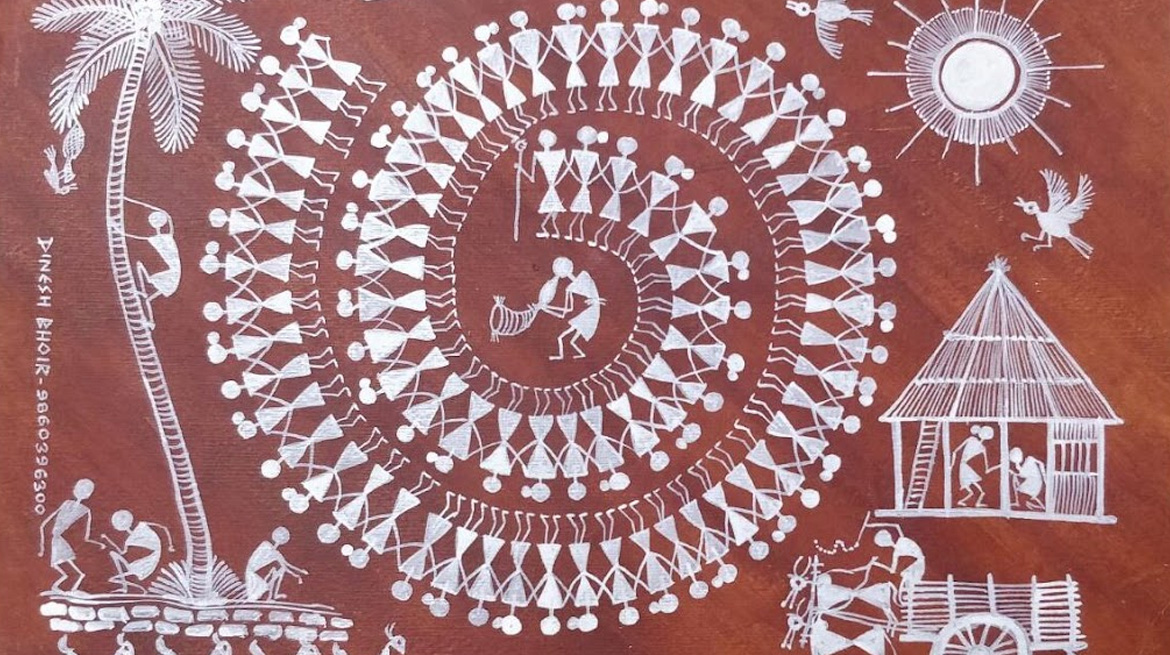Introduction
Conducting research in tribal regions requires academic rigor and respect for local contexts. The rich cultures and histories of tribal communities offer valuable insights, but accessing and documenting these require a multifaceted approach. My dissertation, focusing on the “Assessment of the Prevalence of Hypertension and its Risk Factors among the Adult Tribal Population” in the Lohandiguda block of Bastar district, Chhattisgarh, highlights these challenges. Chhattisgarh, formed in 2000, is home to 7.5% of India’s Scheduled Tribe population. According to the 2011 census1, Bastar district, at an altitude of 2000 feet and with its headquarters in Jagdalpur, had a population of 1,411,644. Over 70% of this population consists of tribal communities such as Dhruva, Gond, Bhatra, Halba, Maria, Muria, and more.
Pre-requisites-
Before starting the study, I visited the Bastar District headquarters in Jagdalpur to gather necessary information. Bastar District, comprising seven administrative blocks (Jagdalpur, Lohandiguda, Tokapal, Bastar, Bakawand, Bastanar, and Darbha), required detailed mapping and contact details for Lohandiguda block. I gathered Gram Panchayat and village details in Lohandiguda and obtained permissions from State Nodal Officer – NPCDCS Chhattisgarh, and CMHO Jagdalpur. Detailed information on villages, including demographics, was collected to aid planning. Field visits involved coordination with local health officials, and support from Community Health Workers was enlisted. A one-day sensitization session was conducted for the Community Health Workers to explain the questionnaire and address queries.

Fig. showing block Lohandiguda, district- Bastar, Chhattisgarh2
Challenges & Solutions
In Fieldwork
Approachability Challenge: reaching remote villages with poor road connectivity. Google Maps and GIS were not helpful. Solution: Plan visits meticulously. Prioritize information and contact details from Mitanins & trainers, and Block Training Officers. Confirm their availability a day before.
Left Wing Extremism (LWE)- Conducting research in the tribal district of Bastar presents unique challenges due to LWE.
Key Challenges:
- Security Risks: LWE groups pose safety threats, hindering research.
- Limited Access: due to dense forests and lack of infrastructure, can hinder data collection and limit research scope.
- Local Trust Issues: Suspicion and fear among locals make building trust essential, yet challenging and time-consuming.
- Disruption of Daily Life: Conflict deters participation due to disrupted activities and fear of retribution from LWE groups.
Solutions:
- Collaboration with Local Authorities: Work with law enforcement for safety and route information.
- Community Engagement: Engage community leaders to explain the study’s purpose and seek their support and cooperation.
- Use of Technology: Use satellite phones, GPS devices, and drones to stay connected and navigate difficult terrains, employing caution in sensitive areas. Aerial surveys and mapping through drones are useful.
- Flexible Research Plans: Have contingency plans and alternative methods to respond to unexpected challenges.
Logistical Issues Challenge: Remote locations and challenging terrains complicate travel and communication. Solution: Advanced planning and flexibility. Establish local contacts, use technology for effective communication, and prepare for various scenarios. Carry extra batteries, automatic blood pressure instruments, and other tools.
Cultural Sensitivity Challenge: Understanding and respecting tribal practices and traditions. Solution: Engage with local leaders and community members. Used participatory research methods to build trust and conduct respectful research.
Access to Information Challenge: Lack of comprehensive records; reliance on oral traditions. Solution: Develop strategies like medical surveys, screenings, interviews, focus groups, and involving community health workers. Corroborate information from multiple sources for accuracy.
Language Barriers Challenge: Local dialects like Gondi and Halbi; limited Hindi speakers. Solution: Working with local translators and learning key phrases was effective & helps respect linguistic nuances and build rapport.
Availability of Personals Challenge: Tribal people start their work early. Solution: Visit them early in the field to ensure their availability.
In Data Collection
Building Trust Challenge: Establishing trust for accurate data collection in tribal regions is challenging. Solution: Establish relationships with community leaders and members. Show genuine interest, be transparent about goals, engage in community events, and share research benefits with the community.
Ethical Considerations Challenge: Navigating ethical dilemmas, ensuring participant safety and confidentiality, and avoiding conflict escalation. Solution: Adhere to ethical guidelines and principles, follow the Ethical Research Practices. Obtain informed consent, ensure anonymity, and engage with an ethics review board. Be sensitive to cultural and social dynamics.
Methods and Tools Challenge: Selecting suitable methods and tools for effective data collection. Solution: Employ local-context methods such as participatory and qualitative approaches, including interviews, focus groups, and ethnographic studies. Balance digital tools with cultural sensitivity. For this study, door-to-door visits and face-to-face interviews were used.
In Dissertation Writing
Organizing Data Challenge: Effective data organization for a coherent dissertation. Solution: Utilize digital tools & software to manage and analyze data. Categorize data thematically and maintain detailed records of sources and references.
Overcoming Writer’s Block Challenges: Writer’s block can make dissertation writing daunting. Solution: Set realistic goals, break writing into sections, maintain a regular schedule, and create a conducive environment. Seek feedback from peers and mentors for motivation and improvement.
Maintaining Accuracy Challenges: Ensuring data accuracy and authenticity in the dissertation. Solution: Double-check facts and cross-reference multiple sources. Be transparent about the research process and limitations. Use quotes and stories from community members for depth and authenticity.
Conclusion
Conducting dissertation research in tribal regions is both challenging and rewarding. By addressing logistical, cultural, and ethical challenges, researchers can create rigorous work that benefits and respects the communities. This journey showcases the resilience of researchers and tribal communities. Despite the difficulties, the insights and contributions to the field are invaluable. With the right approach, researchers can overcome obstacles, gain significant knowledge, and make meaningful contributions.
References-
- Census of India 2011. Office of the Registrar General & Census Commissioner,India. Ministry of Home Affairs, Government of India. Last accessed on 25th November 2024.
- Administrative block Lohandiguda, district- Bastar, State- Chhattisgarh, India.




